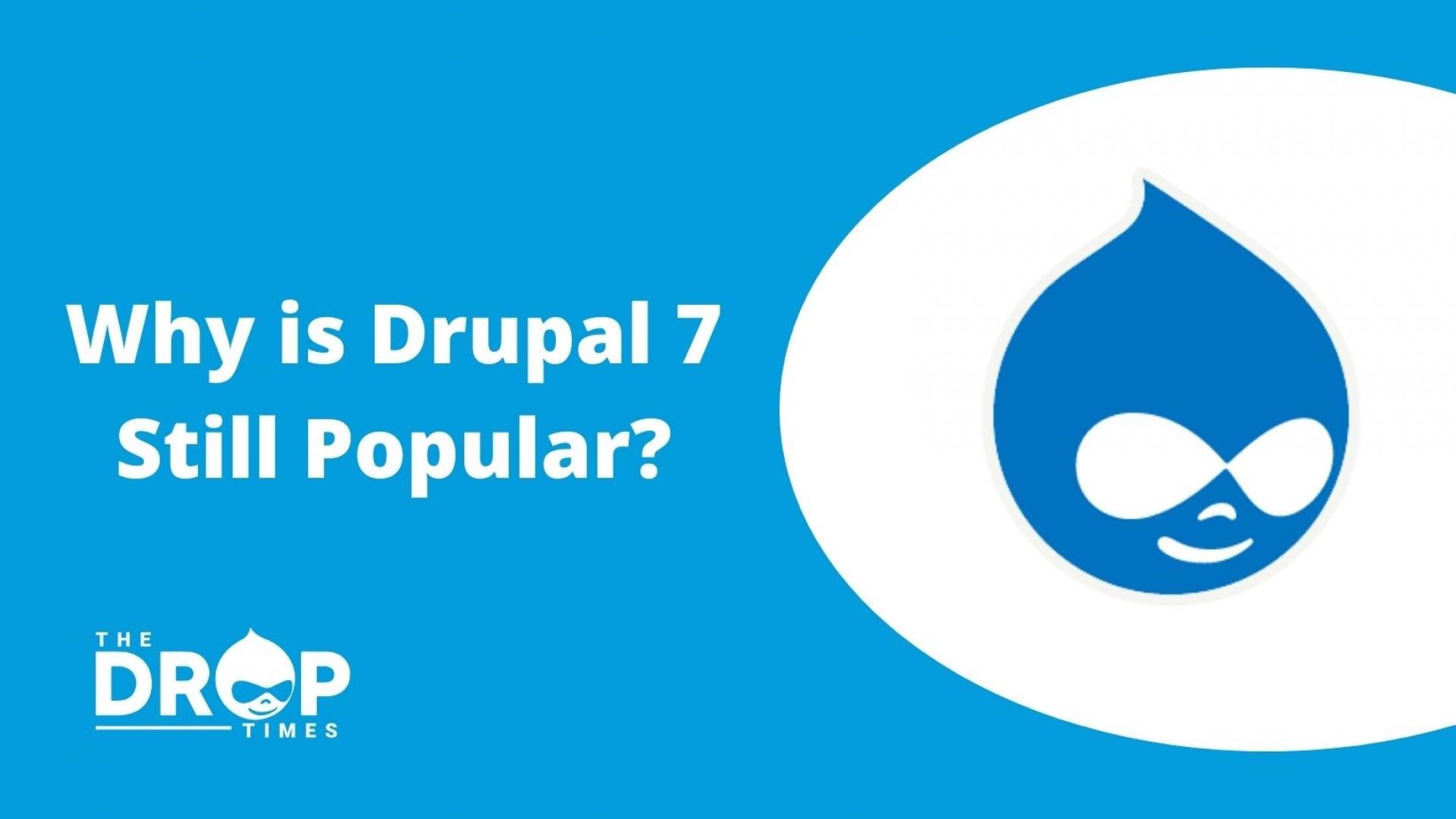Why is Drupal 7 Still Popular?
It’s 2022, Drupal 8 has already reached end-of-life and Drupal 10 will release in December this year, yet the number of websites on Drupal 7 seem to be pretty high. According to usage statistics for Drupal core until May 22, 2022 there are 482,747 websites using Drupal 7. This number is higher than any of the other versions of Drupal.

The high number of Drupal 7 users could also be seen during the Security team session at the DrupalCon Portland 2022. Around 80% of the audience raised their hands when asked how many of them are currently using Drupal 7.
But, despite the release of Drupal 8,9 and the upcoming release of Drupal 10, why is Drupal 7 still popular? Let's find out.
Why is Drupal 7 Still Popular?
1. Reliability of traditional PHP
The release of Drupal 8 and Drupal 9 replaced a lot of its technology with the Symfony framework, changing how modules and themes are coded using Twig. And quite a few coders have felt that this doesn’t work quite as well for their projects as plain old PHP.
2. Perfect Fit
Drupal 7 has been a popular open-source software due to its stability, end-user configuration, feature-rich functionality, hook-based extensions, hierarchical software architecture, scores of stable modules that facilitate functionality extension, and strong support. Many organizations found it to be a perfect fit for their needs; the more developed features that Drupal 9 or even the upcoming Drupal 10 offers may just be overkill for them.
3. Migration Cost
Over time companies have invested a lot of effort into their Drupal 7 website. If they decide to migrate to Drupal 9, it may incur a high cost. Suppose smaller organizations have to invest money to keep upgrading. In that case, they may choose to find another alternative, which is currently true as many Drupal website owners feel it is easier to switch to other CMS.
Another important aspect is that by December, Drupal 10 will be released and for a company investing in the move at this point may not make sense as they will eventually have to upgrade to Drupal 10. This is another important reason for organizations not to move to Drupal 9.
4. Coding
Drupal functions with many self-taught experts who do not have a strong technical or programming background. Such users would prefer to stay on Drupal 7 rather than upgrade to a tech-heavy version of Drupal. Without the low programming advantage of Drupal 7, many developers are asking themselves the question, "If I have to invest in learning something new, why not Ruby or Node.js instead of Drupal 8?"
5. Difficult to Migrate content
Drupal 7 to Drupal 9 migration has always been complicated. It's more of a rebuild than a migration. This obviously is a benefit for web admins who want to take the opportunity of migration to rework the website, remove old fields, re-architect some categorization, remove some unpublished content, and more. But, it's easier to migrate codes than it is to migrate content. This can get even more difficult if you deal with multiple pages or complex websites.
6. Contributed Modules
Another reason for the continued use of Drupal 7 is the sheer number of contributed modules that are still available for Drupal 7 so many years after its release. The ability to make a few simple tweaks to the data, one of the most convenient features in Drupal 7, is lost.
7. Space
Drupal 8 and Drupal 9 bring in a lot of features out of the box, but this means it takes almost five times as much space as Drupal 7. Drupal 7 will be 14.5 MB on disk, compared to Drupal 8 or 9, which would be a massive 72.2MB on disk. This means it will take more space, and the platform will take longer to load. This is an era where speed is of critical importance not just for your SEO ranking but also for maintaining your audience can be a huge hindrance. Though, with the improving technology, the performance has also improved. It can still be a factor of consideration for small organizations or individuals managing their blogs or websites.
These are just a few reasons that stood out in the discussions we saw on social media and blogs. The other reasons could include limited resources, lack of experience, time to migrate, extended support, or something as simple as the comfort of use. Why do you think Drupal is still so popular, and Do you think it will reach end-of-life in 2023?
Source:
Note: The vision of this web portal is to help promote news and stories around the Drupal community and promote and celebrate the people and organizations in the community. We strive to create and distribute our content based on these content policy. If you see any omission/variation on this please let us know in the comments below and we will try to address the issue as best we can.



















